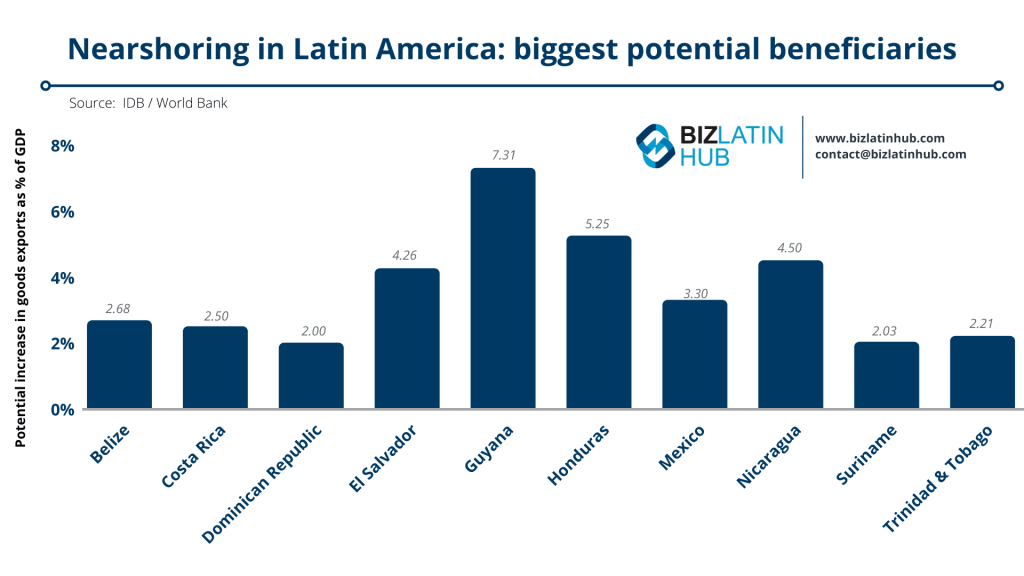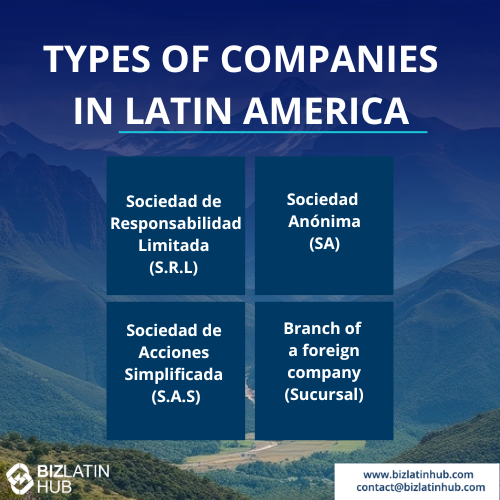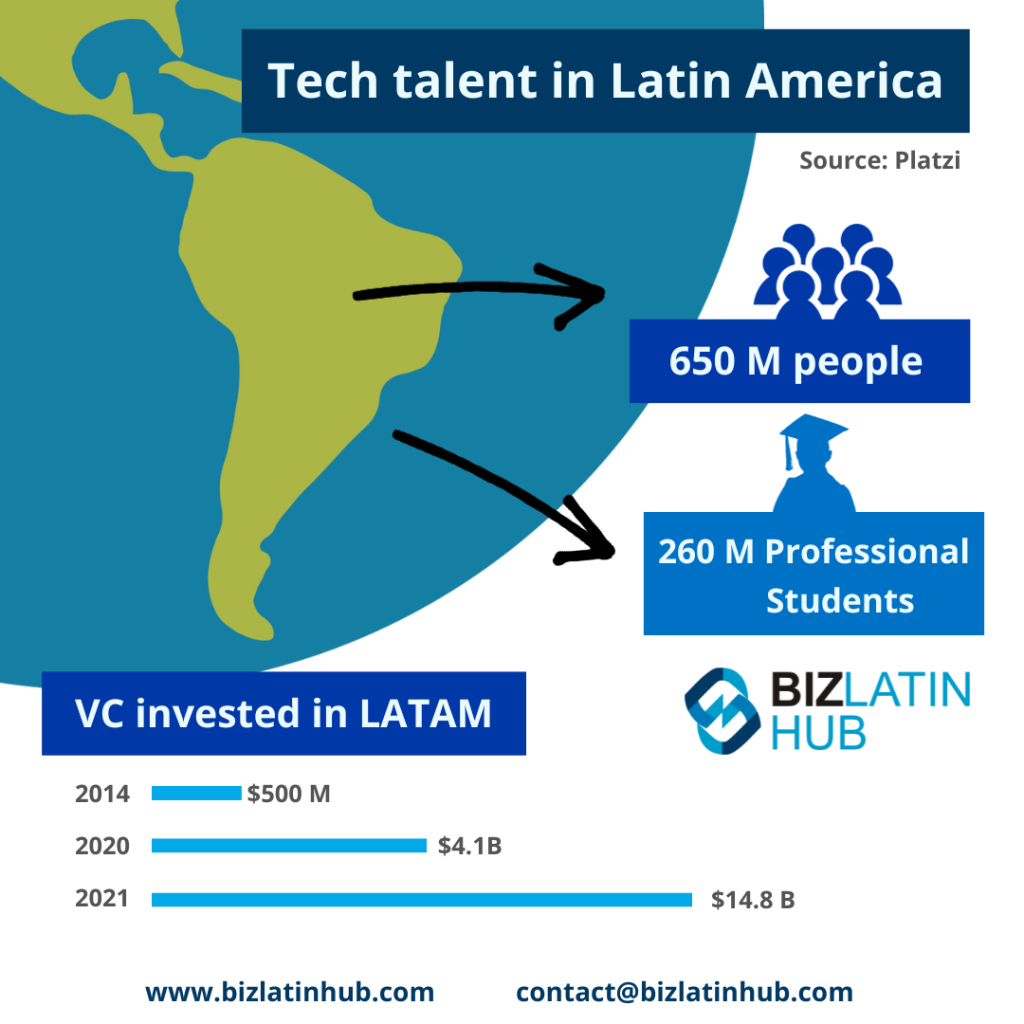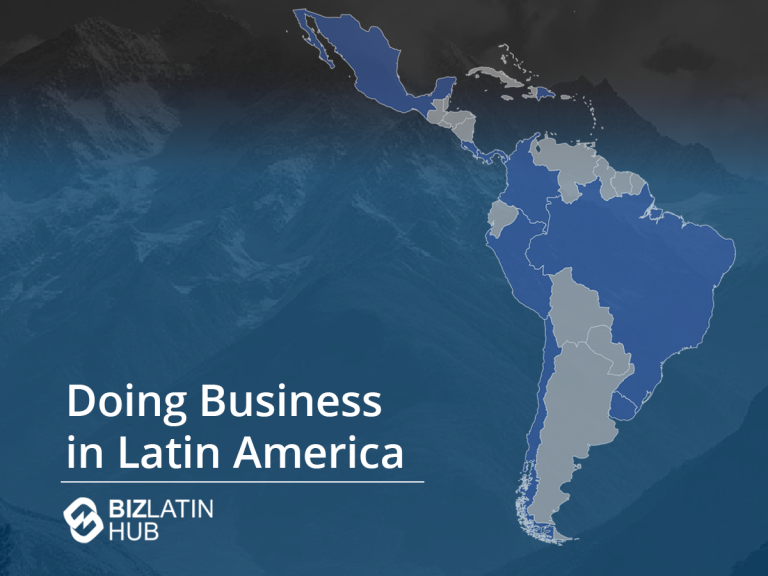Understanding company formation in Latin America is essential for foreign investors to thrive in this booming market. Many of the traditionally quite conservative states that have preferred closed economies are now opening up. TThis guide provides a high-level overview of the shared legal frameworks and processes for establishing a business across Latin America’s diverse markets.
Key Regional Considerations
- Jurisdictional Differences: Legal and bureaucratic processes for company formation can differ substantially from one country to another. What works in Mexico may not apply in Brazil or Colombia.
- Language and Culture: Official documentation will be in Spanish or Portuguese. Understanding local business etiquette and communication styles is crucial for successful negotiations and operations.
- Tax Obligations: Each country has a unique tax system. It is vital to understand corporate income tax rates, Value Added Tax (VAT or IVA), and other local tax obligations from the outset.
Key takeaways on company formation in Latin America
| What are the most common steps for incorporation across the region? | These will vary depending on the country, but in general you will have to register the company, draft bylaws, open a bank account, receive a tax number and make an official declaration |
| What are the general company types to consider? | These are the SRL, SA and opening a local branch of an overseas company. These vary depending on the country, and some places also have a simplified S.A, known as an S.A.S |
| Does company formation in Latin America involve a lot of bureaucracy? | You will need to register with the tax office, the chamber of commerce or equivalent and possibly declare your Ultimate Beneficiary Owners. |
| Will you need a legal representative? | Legal representation is a mandatory requirement in almost all countries. This person will usually be based in the country, and do not normally need to be a local citizen. However, they almost always need residency at minimum |
| Is opening a bank account necessary? | This is a relatively involved procedure that will involve designating access and responsibility. Foreign companies must typically register their investment with the Central Bank. |
| Do different countries have the same rules? | This is a general guide and for specific and detailed advice you will need to contact one of our representatives. |
General Steps for Company Formation in Latin America
You must understand each step of the company formation process before you begin. Below is a detailed step-by-step guide to help familiarize yourself with the system in Latin America.
It takes approximately two to 16 weeks to complete the process of company formation in Latin America once you have all of the required documents. Here are the common steps you will need to follow:
- Step 1: Register the Company Name
- Step 2: Draft Company Bylaws
- Step 3: Obtain a Local Tax ID Number
- Step 4: Make An Official Declaration
- Step 5: Set Up a Corporate Bank Account
Important Note: If the company has foreign shareholders, then a Power of Attorney (POA), apostille process, and translation of documents may be required.
Step 1: Register the Company Name
Registering the company is usually done with the local chamber of commerce or with the ministry of work or equivalent. This is how you will be visible in the eyes of the law – so that people know you are legitimate operator in good standing. It also commits you to follow all relevant local laws. This step often involves a verification process to ensure the name is not already in use by another registered entity in the country.
Step 2: Draft Company Bylaws
Drafting the company constitution will be highly dependent on both the type of company you have decided to open and the country in which you are working. There will be some restrictions in terms of how many shareholders are needed, what the maximum number of shareholders might be and whether a board is necessary, for example.
Step 3: Obtain a Local Tax ID Number
Obtaining a local tax number is always of critical importance. It is often known as a NIT (Número de Identificación Tributaria) or RUT (Registro Único Tributario), and some countries draw a distinction between the two. These identify you for all offical tax purposes.
Step 4: Make an Official Declaration
An official declaration of your company formation in Latin America is not always necessary. Where it is a legal requirement, it will generally be a clearly designated manner and publication. In some places, you will have to make an official declaration and also a public declaration in a newspaper of record or equivalent.
Step 5: Set Up a Corporate Bank Account
The final step is usually to set up a corporate bank account. This varies a little depending on the type of company and country. Opening a corporate bank account is a more complex affair than a regualr current account. You will need to provide your tax number and decide who has authorization to make payments and withdrawals, among other things. Requirements for opening a corporate account vary significantly by country and bank, so it is crucial to research these in advance.
Expert Tip: The Banking Compliance Challenge
From our experience operating across the region, opening a corporate bank account is consistently the most time-consuming step, often taking longer than the incorporation itself. Latin American banks have strict Know Your Customer (KYC) and Anti-Money Laundering (AML) protocols.
They require detailed documentation on the company’s ultimate beneficial owners, often requiring apostilled documents from abroad. We advise clients to prepare these documents in advance and to anticipate a timeline of 4-8 weeks for account opening in countries like Mexico, Colombia, and Peru.

What entity types are there in Latin America?
Company formation in Latin America is a multi-step process, and one of the initial and most crucial decisions you’ll make is selecting the right type of company structure. The type of company you choose will have significant implications on aspects such as liability, taxation, and administrative requirements.
In Latin America, there are several types of companies to choose from, each with its own set of characteristics and requirements. Below, we will provide an overview of the most common types of company formation in Latin America to help you understand the options available and make an informed decision for your business.
These are the entity types most commonly found in the region, but be aware that company formation in Latin America also includes a number of entity types that are generally aimed at smaller operators such as sole traders and the like.
1. Sociedad de Responsabilidad Limitada (S.R.L)
This is similar to an LLC in other jurisdictions, usually with anything between 1 to 50 shareholders. The company name must illustrate the goods or services it provides or include the name of one or more partners. Personal liability is tied either to the value of shares held or to capital investment.
Commonly Used For: Small and medium-sized enterprises (SMEs), family businesses, and professional service firms.
2. Sociedad Anónima (SA)
A public limited company (Sociedad Anónima or SA) is another option for company formation in Latin America. Each shareholder is liable to the extent of their capital contribution. They are often able to be traded publically, but not always.
Commonly Used For: Large corporations, businesses planning to raise capital publicly, and entities with numerous shareholders.
3. Sociedad de Acciones Simplificada (S.A.S)
This type of company facilitates the incorporation of a company by simplifying procedures, costs and allowing for a flexible corporate structure. It is designed to help smaller businesses enter the market quickly and bypass heavy bureaucracy.
The S.A.S are companies where the ownership can be by a sole person. It requires a legal representative to be appointed within the company bylaws, a fiscal address, and no minimum capital.
Commonly Used For: Startups, tech companies, and modern businesses looking for a flexible and streamlined corporate structure.
4. Branch of a foreign company (Sucursal)
It is possible to incorporate a branch of an existing country. A branch of a foreign company in Latin America does not possess an independent legal status separate from the parent company. This process suits large conglomerates that will benefit from retaining links to existing brand strength and/or well-developed internal processes.
Commonly Used For: Multinational corporations expanding their existing operations into a new Latin American market without creating a separate legal entity.

What are the minimum requirements for company formation in Latin America?
The minimum requirements to incorporate a business in Latin America usually include all or some of the following:
- A name for your legal entity.
- At least one named shareholder, which can usually be either a natural person (individual) or legal person (entity).
- Appoint a legal representative within the bylaws of the company.
- Register a fiscal address which must be within the country and is used for official correspondence.
- The business activities, corporate purpose, and primary operations.
- Minimum initial capital to be registered.
These are the minimum general requirements for company formation in Latin America. It’s important to note that the process can involve other steps and documents, depending on the specific circumstances of your business and the type of company you’re setting up.
It’s highly recommended to seek professional legal and business advice when starting a company in Latin America to ensure compliance with all regulations and to make the process as smooth as possible.
Important Tip: We always recommend having a preferred legal name and two alternatives in case the primary legal name is unavailable.
The Role of the Legal Representative
Across Latin America, appointing a Legal Representative is a universal requirement. This individual represents the company legally, judicially, and extrajudicially. In most countries, they must be a citizen or a foreign resident with a valid visa. They carry significant personal liability, making this a critical appointment.
From our experience assisting clients across Latin America, the role of the local Legal Representative cannot be overstated. In many countries, this person must be a national or a resident with a local tax ID. A common pitfall for foreign companies is underestimating the time it takes to find and appoint a trustworthy and compliant Legal Representative.
We advise starting this search early in the process, as their appointment is a prerequisite for completing company registration and opening a bank account. Ensure you have a clear service agreement that outlines their responsibilities and liabilities.

FAQs on company formation in Latin America
Answers to some of the most common questions we get asked by our clients.
Yes, in all jurisdictions we operate in a business can be 100% foreign-owned by either legal persons (legal entities) or natural persons (individuals). However, you will still need a local legal representative to act on the company’s behalf.
Latin American company tax ID are often known as a RUT (Registro Único Tributario), which translates in English to Single Tax Registration, a unique identification number for tax purposes across Latin America.
It takes two to 16 weeks to register and set up an operating company in Latin America, contingent upon the timely submission of all necessary documents and the sector/country you are in.
A public limited company (Sociedad Anónima or SA) is another option for company formation in Latin America. Each shareholder is liable to the extent of their capital contribution.
This is similar to an LLC in other jurisdictions, usually with anything between 1 to 50 shareholders. The company name must illustrate the goods or services it provides or include the name of one or more partners. Personal liability is tied either to the value of shares held or to capital investment.
The Sociedad por Acciones (S.A) and Sociedad de Responsabilidad Limitada (S.R.L) both provide limited liability protections to their owners in Latin America.
We usually recommend Simplified Share Companies where they exist, but this does vary slightly depending on a variety of factors, such as the country, industry and size of company.
In most Latin American countries, the company formation process can be completed remotely through a Power of Attorney (POA). This document grants a legal representative the authority to act on your behalf, signing documents and completing necessary registrations without you needing to be physically present.
Documents for foreign shareholders, such as passports and proof of address, typically need to be apostilled in their country of origin. Depending on the Latin American jurisdiction, these apostilled documents will also require an official translation into Spanish or Portuguese by a certified translator.
A Sociedad de Responsabilidad Limitada (SRL), or Limited Liability Company, is generally simpler to manage and suited for small to medium-sized enterprises. The liability of its members is limited to their capital contributions. A Sociedad Anónima (SA), or Corporation, is more complex, allowing for the public trading of shares, and is better suited for larger businesses seeking investment from the public.
Minimum capital requirements vary widely across Latin America. Some countries have no specified minimum, while others require a certain amount to be deposited in a bank account or declared during the incorporation process. This is a key factor to verify for your target country.
The Simplified Stock Company (SAS) is a modern, flexible entity available in countries like Colombia, Argentina, Ecuador, and Uruguay. It simplifies incorporation and is ideal for foreign investors.
How can Biz Latin Hub help with company formation in Latin America?
At Biz Latin Hub, our multilingual team of company formation specialists has extensive experience in supporting foreign executives when starting a business in Latin America. We offer a complete set of services for your business needs, such as legal, accounting, and recruitment support.
You can rely on us as your main contact for entering and doing business in any of the 18 markets in Latin America and the Caribbean where we operate.
Contact us now for personalized assistance or a free quote on company formation in Latin America.
Learn more about our team and expert authors.






